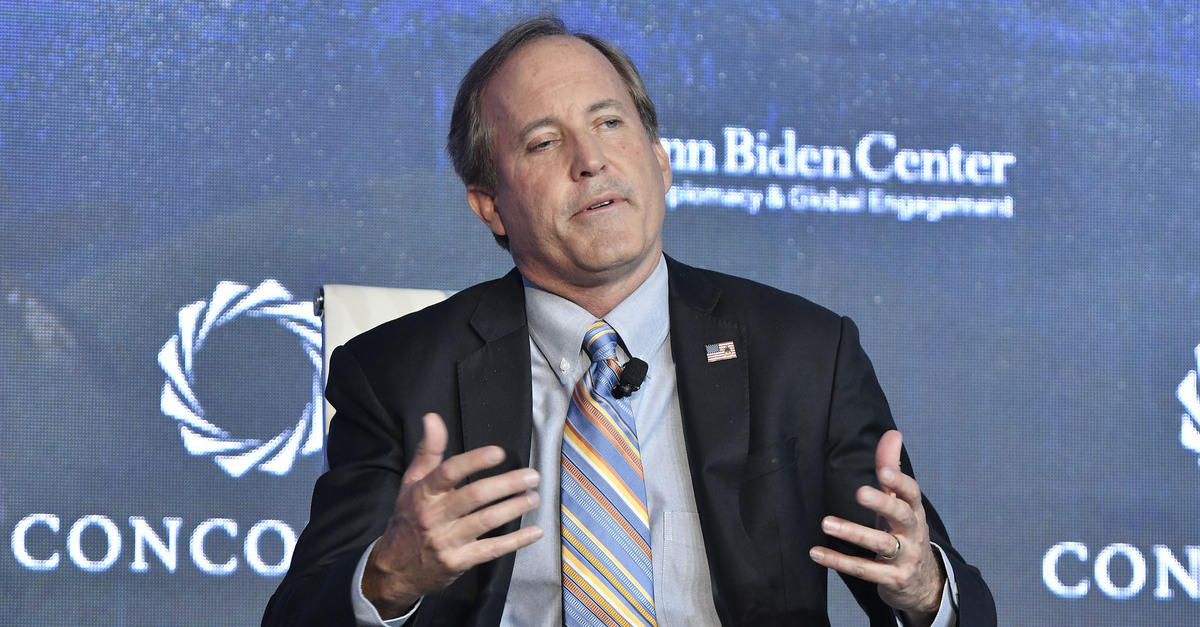
Texas Attorney General Ken Paxton
A federal judge in California on Tuesday dismissed Twitter’s lawsuit accusing indicted Texas Attorney General Ken Paxton (R) of opening an illegal investigation into the social media platform in retaliation for its decision to permanently ban former President Donald Trump.
The ruling turned on a technicality and the court did not address the merits of Twitter’s claim, finding that the court lacked subject matter jurisdiction over the case because the company’s claims were prematurely filed.
The complaint stems from Paxton’s efforts to rummage through Twitter’s confidential information as part of a probe announced just days after the most major tech companies banned the 45th president in the wake of the Jan. 6 siege of the Capitol. .
Paxton’s office issued civil investigative demands (CID)—subpoena-like requests for information— to Twitter, Google, Facebook, Amazon, and Apple, seeking the companies’ content moderation policies and practices. The Texas attorney general, who has been under the legal microscope himself due to securities fraud charges and allegations of bribery, said that for years the tech companies “have silenced voices in the social media sphere and shut down competing companies and platforms,” couching his concern as a First Amendment issue that “chills free speech.”
Twitter responded by suing Paxton in the U.S. District Court for Northern California, seeking an injunction barring the AG from “initiating any action” to enforce the investigatory demands and a declaration that the probe is barred by the First Amendment as “unlawful retaliation against Twitter for its moderation of its platform, including its decision to permanently suspend President Trump’s account.”
In a seven-page ruling, U.S. District Judge Maxine M. Chesney, an appointee of former President Bill Clinton, found that Paxton opening a probe and issuing CIDs to Twitter did not amount to a “cognizable adverse action” against the company as required for a First Amendment retaliation claim.
Chesney reasoned that, unlike subpoenas, CIDs like the one issued by the attorney general’s office, are not “self-executing” discovery instruments, meaning that they can be ignored, without penalty, unless an additional court order is sought.
“[T]he Office of the Attorney General has no authority to impose any sanction for a failure to comply with its investigation. Rather, the Office of the Attorney General would be required to go to court, where the only possible consequence adverse to Twitter would be a judicial finding that the CID, contrary to Twitter’s assertion, is enforceable,” Chesney wrote. “Accordingly, as, to date, no action has been taken to enforce the CID, the Court finds Twitter’s lawsuit is premature, and, as such, is subject to dismissal.”
In other words, because Twitter is not currently obligated to comply with Paxton’s demand for access to its communications and moderation policies, it’s too early in the legal process for a federal court to decide the controversy on the merits.
Should Paxton pursue a court order, Twitter would likely make the same arguments regarding the investigation being barred as unlawful retaliation under the First Amendment, resulting in a merit-based ruling.
Law&Crime reached out to Twitter for comment on the ruling.
“The court today correctly found it has personal jurisdiction and San Francisco is the appropriate venue. The First Amendment protects everyone’s right to free speech, including private companies,” a Twitter spokesperson said in a statement. “In this case, the Texas Attorney General is misusing the powers of his office to infringe on Twitter’s fundamental rights in an attempt to silence free speech. The court’s ruling today did not conclude otherwise.
“Although we disagree with some aspects of the court’s findings, we’ll continue working to advance our principles and defend the Open Internet,” the statement continued.
Read the full ruling below.
Twitter v. Paxton Ruling by Law&Crime on Scribd
[image via Gabriel Aponte/Getty Images for Concordia Summit]